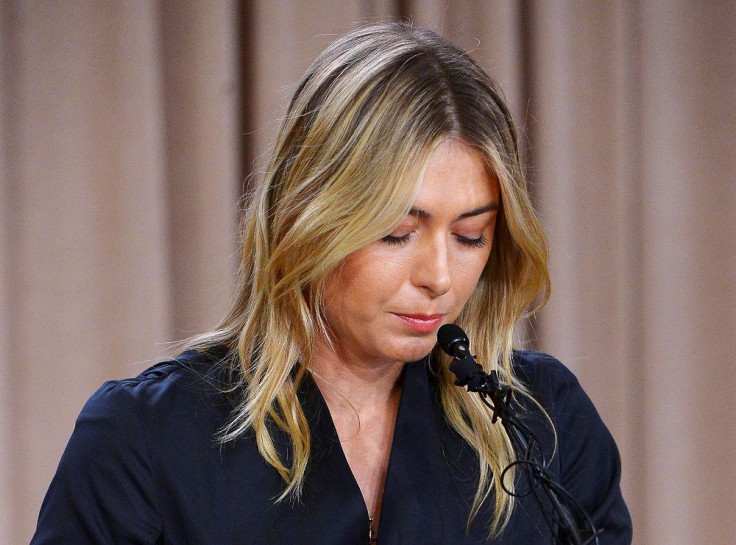Maria Sharapova is 7th athlete to have tested positively for meldonium

Former world No. 1 female tennis player Maria Sharapova shocked the sports world on Monday when she announced at a news conference that she failed a drug test at the Australian Open. The culprit is the newly banned substance meldonium that the 28-year-old Russian athlete has been taking or a decade due to health issues.
The ban by the World Anti-Doping Agency (WADA) took effect on Jan 1, 2016. Sharapova, actually is not the first sportsman affected by the agency’s ban on meldonium, used medically to treat ischemia, or inadequate blood supply. But it could also be used as a metabolic enhancer to boost an athlete’s endurance with greater blood flow.
According to the Hollywood Reporter, two other athletes tested positive too for meldonium. The first is Abebe Aregawi Gebretsadik and the second is Endeshaw Negesse. Tesfanews named two Ukrainian biathletes, Artem Tyschenko and Olga Abramova. Reuters added Russian cyclist Eduard Vorganov and figure skater Ekatarina Bobrova to the list.

Aregawi is the 2013 women’s 1,500 metres world champion. The 25-year-old Ethiopian middle-distance runner was suspended as a result of the WADA policy when she failed the test in January. With a personal best time of 3:56:54 for the 1,500 metres, Aregawi represented Sweden internationally since 2012, although her Swedish citizenship was questioned, reports RT after she was found guilty of tax evasion. Aregawi had admitted to never living in Sweden which explains why she never paid taxes. Her wedding and divorce to Henok Weldegebriel is seen as just a way to acquire Swedish citizenship.
Negesse, also an Ethiopian marathon runner, tested positive for meldonium. He beat the current Olympic champion, Stephen Kiprotich of Uganda, in 2015 Tokyo Marathon by finishing first with a time of 2:06. However, it was a bit slower than his personal best of 2:04:52 which he logged at the 2013 Dubai Marathon for fourth-place finish.
According to Tesfanew, quoting Ethiopian Anti-Doping Agency General Secretary Solomon Meaza, nine Ethiopian runners were investigated for use of the newly banned substance. WADA previously classified meldonium as a monitored drug but changed it to “banned” because of evidence that athletes were using it to enhance their performance.
Abramova, a Russian who joined the Ukraine team, tested positive on Jan 10 while competing in the World Cup series. Like Sharapova, Abramova took the drug for a health problem. Even though it was prescribed by her doctor, she stopped taking it when WADA banned meldonium. However, it has stayed in her system, explains Daily Journal.
Tyschenko won in the single mix in January by using 14 spares to finish 41:50.9 in the IBU Cup, reports Biathlonworld. Reuters confirms that Tyschenko also tested positive for meldonium.
Vorganov, provisionally suspended on Feb 5 by the UCI, won the Russian Road Race Championships in June 2012. Bobrova is the 2013 World bronze medalist and 2013 European champion and finished third at the European Championships in January. The positive test cost her participation, together with partner Dmitry Soloviev, in the world championships in Boston this March.

Sharapova’s doctor prescribed her mildronate, another name of meldonium, because she was frequently sick, suffered from irregular EKG results, had magnesium deficiency and her family has a history of diabetes. Despite those circumstances, Sharapova says she takes full responsibility for her act and faces its consequences.
However, she stresses, “I don’t want to end my career this way. I really hope that I will be given another chance to play this game.” The International Tennis Federation (ITF) provisionally suspended Sharapova beginning March 12. ITF rules call for a four-year suspension of players who test positive. WADA declined to comment on the impact of the ban on athletes taking the drug for medical reasons until the ITF comes up with a final decision.





















